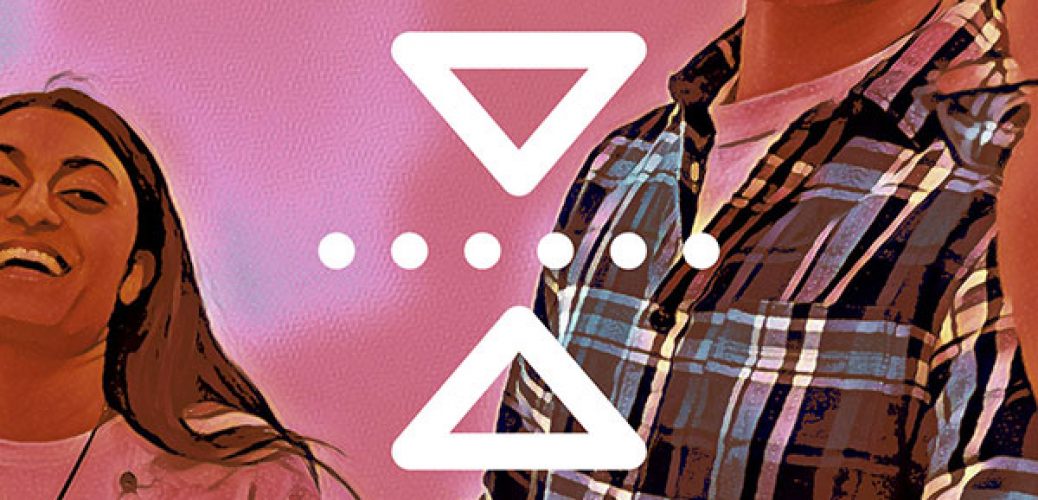Episode 16 – Morgan Voss (MIT Student) Reflects On Episodes 13-15
Podcast: Play in new window | Download (Duration: 8:22 — 11.5MB) | Embed Subscribe: Apple Podcasts | Google Podcasts | Stitcher | Email | TuneIn | RSS
We sit down with a graduate student to unpack the previous episodes.
EPISODE CREDITS
Guest Starring Morgan Voss, Student in MIT EECS
Produced & Hosted by Adam Greenfield
Executive Produced by Patrick Yurick, Instructional Designer – MIT OGE
Executive Produced by Heather Konar, Communication Director – MIT OGE
Special thanks to the following editors who provided us invaluable feedback that aided in the development of this show:
Christopher O’Keeffe, Co-Founder of Podcation
Kristy Bennet, Manager – MIT Women’s League
Jennifer Cherone, Phd Candidate – MIT Burge Laboratory
Erik Tillman, Phd, Formerly of the Kim Lab & Currently A Fellow at Vida Ventures, LLC
The Great Communicators Podcast is a part of Gradcommx. Gradcommx, targeted at enhancing research communication, is the first offering of Gradx – a professional development project created for the graduate student population at the Massachusetts Institute of Technology by the Office For Graduate Education.
MUSIC & SOUNDS
“All The Best Fakers” by Nick Jaina is licensed under a Attribution-NonCommercial 3.0 International License (http://freemusicarchive.org)
“Abracadabra” by Silent Partner; No license required (https://www.youtube.com/audiolibrary/music)
“Deliberate Thought” Kevin MacLeod (incompetech.com) is Licensed under Creative Commons: By Attribution 3.0 License http://creativecommons.org/licenses/by/3.0/
EPISODE SCRIPT
ADAM GREENFIELD
Welcome to The Great Communicators Podcast presented by The MIT Office of Graduate Education, a professional development podcast expressly designed to bring lessons from the field to our graduate student researchers.
My name is Adam Greenfield and in this special episode, we’re going to get a different perspective on the things we’ve heard so far.
We asked a few MIT grad students to listen to the interviews we conducted with these great speakers, then provide feedback on what they heard.
In this episode….
GRAD STUDENT: Morgan
My name is Morgan Voss and I am a graduate student in the Masters of Engineering program at MIT and the EECS Department.
ADAM GREENFIELD
And when it comes to communicating, Morgan’s aware of her struggles.
GRAD STUDENT: MORGAN
I’m working as a TA and I have to interact with about 23 different students and I have to structure essentially the same program recitation but know how to direct it effectively for each different group of students and sometimes it’s a struggle to see some students who aren’t as interested in what I’m talking about or who aren’t quite on the same page and how do I address that and how do I make sure that my overall message is still being applied.
ADAM GREENFIELD
Fortunately, Morgan has participated in leadership programs and through them has been able to take away very useful pieces of knowledge for future use.
GRAD STUDENT: MORGAN
And just through repeated practice and exposure to that type of experiences I’ve gotten increasingly more comfortable having an audience that maybe doesn’t quite understand me or isn’t quite on the same page or maybe not as interested. And I’ve learned to not be afraid of those instances but use those effectively to make sure I do a better job.
ADAM GREENFIELD
When it comes to the podcast, one of the takeaways for Morgan was what Ed Boyden was talking, the constructive failure…
GRAD STUDENT: MORGAN
… the falling forward.
ED BOYDEN
I often ask people to think about aiming for a constructive failure. It is probably going to fail, but you will know what you need to do next. I think from that comes wisdom.
GRAD STUDENT: MORGAN
I think that in- as a graduate student and as you’re pursuing extra studies and research that you feel that need to come up with the best idea and to have the most innovative project and to really just do something amazing. And oftentimes what you’re doing maybe isn’t so important and impactful and you also will fail along the way. And for me it’s my first time pursuing research in this manner and to have- it’s a different perspective verses just learning because you are venturing into something new and taking those small steps and realizing that you may need to redirect your path a little and you may need to completely change the direction you’re going in. I think that it’s important to realize that those failures are going to happen and it’s a part of the process. An important part.
ADAM GREENFIELD
There’s also the somewhat frightening but useful and necessary peer review aspect that Brunie Felding raised.
BRUNIE FELDING
That’s something that you start in your mind with your team and then you write it up and it’s your baby from start to finish. And then it gets peer reviewed, you know, with and by people who are in your field and you get feedback.
GRAD STUDENT: MORGAN
I think sometimes, especially when I’m writing up things that I put a lot of time and thought into them, and I’m maybe a little protective of my work and so I at the same time I don’t want them to see it and think negatively of me. I also am maybe a little less receptive to people critiquing something that I spent so much time working on. But usually that extra perspective allows you to step outside of your head and start to realize what it looks like to your audience, which is often the point of creating some sort of communication piece. How do you effectively address an issue with someone else and how do you effectively convey that? And so it doesn’t matter if I know what I’m thinking about really well and I understand everything and it suits my needs. That’s not the point of a communication piece.
*ADAM GREENFIELD
As for Sage Rosenfels, the retired football player, Morgan thought his message was….
GRAD STUDENT: MORGAN
….a little daunting that he was, like, if you screw up you screw up and you fail and that’s it, you can’t really do anything.
ADAM GREENFIELD
But…
GRAD STUDENT: MORGAN
… But I think his point was that you have to just keep- you gotta get up and keep going.
SAGE ROSENFELS
People may remember that mistake or they may remember the rest of your performance as being spectacular.
GRAD STUDENT: MORGAN
And I think that’s important in life and especially important in communication because if you- sometimes even if you get a skill that you’re comfortable with communication-wise, sometimes it doesn’t work with certain audiences and you have to learn to adapt and if you don’t then you’re not an effective communicator and you’ve cut off a whole section of your audience that will not receive your message.
ADAM GREENFIELD
In the end, it seems the idea behind the podcast topics on process and failure were not lost on Morgan.
GRAD STUDENT: MORGAN
I think it’s just a continual progress towards feeling comfortable with failure. Everyone fails and I feel, even despite that, there’s still pressure to always succeed, to always be perfect, and that’s impossible. And instead, if you accept that failure is going to happen you can learn from it and make it an effective experience for you. And I think that’s important. I also appreciated the notion of starting with an end point and working backwards. That’s something that I’ve heard elsewhere and thought about. I haven’t quite used it but I think that that’s an important notion or way to handle a big task and sometimes as a grad student writing a thesis, those can be a really big monumental task and you have to learn to work backwards and break it down and make it into manageable pieces.
ADAM GREENFIELD
Thanks for listening to The Great Communicators Podcast brought to you by The MIT Office of Graduate Education. My name is Adam Greenfield, and feel free to talk amongst yourselves.
LISTEN TO MORE EPISODES



3fatigues
January 12, 2022 @ 10:10 pm
1responsibility
older gay chat
January 14, 2022 @ 12:18 pm
gay chat randome https://bjsgaychatroom.info/
gay dating for ftm's
January 14, 2022 @ 1:39 pm
dating site for gay https://gaypridee.com/
gay skype chat room
January 14, 2022 @ 5:59 pm
older gay chat https://gaytgpost.com/
video boy randon gay chat
January 14, 2022 @ 9:31 pm
pdx gay chat https://gay-buddies.com/
christian gay dating app for android
January 15, 2022 @ 9:24 pm
free gay twink dating https://speedgaydate.com/
sim slots
January 28, 2022 @ 4:19 pm
double down slots https://2-free-slots.com/
winning slots
January 28, 2022 @ 8:42 pm
top dollar slots in vegas https://freeonlneslotmachine.com/
kanomi slots
January 29, 2022 @ 3:41 am
free caesars slots online https://pennyslotmachines.org/
exosuit cargo slots
January 29, 2022 @ 7:17 am
play free lucky 777 slots https://slotmachinesworld.com/
ashbringer relic slots
February 3, 2022 @ 8:20 pm
free slots no downloads https://slot-machine-sale.com/
slots machines free online
February 3, 2022 @ 10:59 pm
free casino slots https://beat-slot-machines.com/
vegas free slots
February 4, 2022 @ 4:16 am
brazilian beauty slots https://download-slot-machines.com/
slots free
February 4, 2022 @ 7:18 am
100% free slots games https://411slotmachine.com/
888 free slots machine
February 4, 2022 @ 11:49 am
online slots real money https://www-slotmachines.com/
slots winning video 2022
February 4, 2022 @ 3:51 pm
las vegas casino slots https://slotmachinegameinfo.com/
books on dissertation writing
February 10, 2022 @ 5:44 pm
dissertation abstracts https://buydissertationhelp.com/
phd dissertation length
February 11, 2022 @ 4:09 pm
writing service custom dissertation https://dissertationwriting-service.com/
dissertation thesis writing
February 11, 2022 @ 9:37 pm
uk dissertation help https://mydissertationwritinghelp.com/
cheap dissertation help in dallas
February 12, 2022 @ 2:39 am
phd dissertation writing service https://dissertations-writing.org/
finance dissertation writing help
February 12, 2022 @ 6:22 am
writing implications in a dissertation https://helpon-doctoral-dissertations.net/